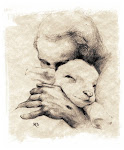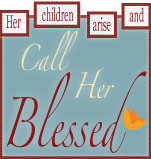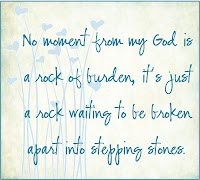Thursday's Therapy
Complex Grief, Depression, or Bereavement?
~David Joel Miller, LMFT, LPCC
Is it Complex Grief, Depression, or Bereavement?
Posted on April 22, 2012
~David Joel Miller,
Marriage and Family Therapist, Licensed Professional Clinical Counselor
Just what is Complex Grief, compound grief and why have people been asking about them recently?
Complex grief is also called complicated grief, traumatic grief, prolonged grief, chronic grief or extreme grief.
The Idea behind Compound grief and its many other labels is that while most everyone experiences grief at some point in their life, sometimes that grief becomes debilitating and people with these issues need help. The questions become, is this a mental illness and how should people with severe grief issues be helped.
One thing therapy shouldn’t do is turn everyone into a mental patient and start requiring treatment for all. In professional lingo this is called pathologizing clients. There is plenty to do helping people who genuinely need help so we don’t need to enlarge the number of disorders just to keep counselors busy.
Grief is a normal part of life. People we love die. The loss of a close family member should make you sad. When does this move from a normal part of life to a disorder requiring treatment. And who should pay for this? Insurance companies may cover necessary treatment but they will draw the line if normal human emotions become the subject of treatment. The more diseases we create the more health care will cost. Besides if someone really has extreme impairment as a result of bereavement that becomes Major Depression and gets treated right? Not exactly.
Currently grief is excluded from the DSM-4 criteria for depression. The reasoning for this was that if everyone is likely to experience this sooner or later then it is not a mental illness. Just how much the death of a family member is expected to affect us is mostly a result of culture. Some cultures (mourn) for a year or more. The widow or widower wears black and is granted time to grieve their loss.
In western society we limit grief to 60 days. Many other acute life events are limited to 30 days. After that you are supposed to get back to work and living. Since the DSM guide to mental illnesses is published by the American Psychiatric Association it reflects American and western values. That may not be appropriate for people of other cultures regardless of where they live.
Currently the loss of a close person is included in the DSM as V62.82 Bereavement. V codes normally are not covered by most insurance plans. At least two factions are working to change this.
Those who are working on the new DSM-5 report that Complex grief is a disorder proposed by groups outside the APA which is being considered. Additionally people within the APA have suggested removing the exclusion for grief from the definition of Major Depressive Disorder. That would result in more people who have severe symptoms as a result of grief getting treatment under the Depression code. I suspect that in practice most clinicians after a while go ahead and give the diagnosis of depression, grief or no, after the client has had problems for a while.
But there is another problem with all this increasing of treatment for grieving people. A specialty is growing up of practitioners who say they specialize in “grief counseling.” The research has not been kind to some of those “Grief counselors.” Some grief counseling seems to do more harm than good.
Personally I am all for helping people who need help but the idea that we might evolve a sub specialty of counselors who are doing harm not good worries me. Complex grief is not the only area where we have a risk of doing more harm than good.
Some of the treatments for PTSD and other trauma counseling have the potential to make the victim relive the experience… rather than allowing them to heal. The repeated exposure to the trauma may retraumatize the client and (make) them worse.
Not everyone who experiences the loss of a loved one has symptoms we might call complex grief. People with a past history of Major Depression are more likely to become depressed again if someone close to them dies. So is this a new disorder “complex grief” or is this a reemergence of Major Depression? Add a second stressor like financial problems, divorce, alcoholism or addiction and the loss of a loved one is more likely to affect peoples functioning.
People with multiple losses are more at risk and so are people who have a loss in early life and then experience a loss again. If you lose a parent as a child, are you more likely to feel sad when someone else dies in your life? Does that make the second loss a mental illness?
Men and women differ in they way they show grief, so do people of different cultures. We would want to avoid creating a mental illness that only one sex or culture gets diagnosed with. But then we already have several that are more likely to be given to (women) than men. Does that mean that there is a difference in the mental health of one sex or the other or only that we are defining the emotions of women and ways they express them as a mental illness.
Professionals don’t all agree on this.
So what do I think will happen? Wish my crystal ball was clearer. My guess is that we will not add complex grief as a new disorder. The APA looks poised to soften the criteria for Major Depression and let some people who are suffering from depression as a result of a traumatic loss get more help.
I also expect to see more peer and self-help groups with or without professional assistance.
So what do you think?
Is complex different than normal grief?
Should it be a separate diagnosed mental illness or is it a normal human emotion?
~~~
This post was featured in “Best of Blog – May 2012”
For more about David Joel Miller and my work in the areas of mental health, substance abuse and co-occurring disorders see the "about the author page." about the author page. For information about my other writing work beyond this blog there is also a Facebook authors page, in its infancy, up under David Joel Miller. Posts to the “books, trainings and classes” category will tell you about those activities. If you are in the Fresno California area, information about my private practice is at counselorfresno.com. Thanks to all who read this blog.
~~~
This post came out over a year ago. We know now that this writer's prediction did not prevail. He had said, "My guess is that we will not add complex grief as a new disorder." To the contrary, this very month, May, 2013, the new DSM comes out, the "DSM V," and it does indeed add "Complicated Grief" as a "disorder."
Tommy and I, both trained in counseling psychology, and both grieving parents, are concerned with this added "diagnosis" as we know ~as child-loss parents- that what is being termed "Complicated Grief," and added as a diagnostic "disorder," is, in fact, the NORM for Child-Loss Grief and Trauma.
Life-long grief is to be expected and adapted to, and should therefore not be coined as a "disorder," adding to the further pathologizing of Child-Loss Grievers that this culture already tends to do when we are struggling with our very normal grief...
~~~

Pictures, thanks to ~The Compassionate Friends of Atlanta Siblings Group
Article from CounselorsSoapbox.com
http://counselorssoapbox.com/2012/04/22/is-it-complex-grief-depression-or-bereavement/












































No comments:
Post a Comment